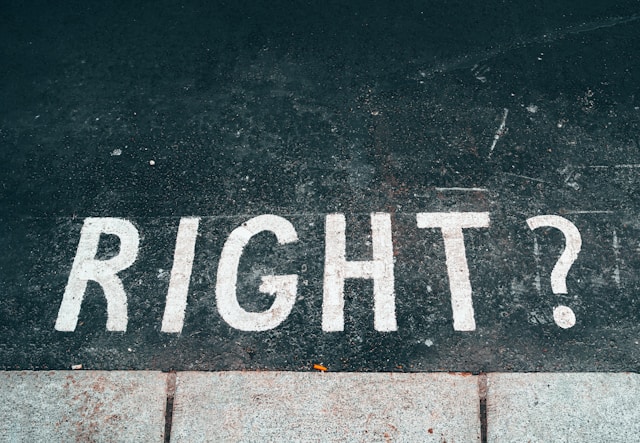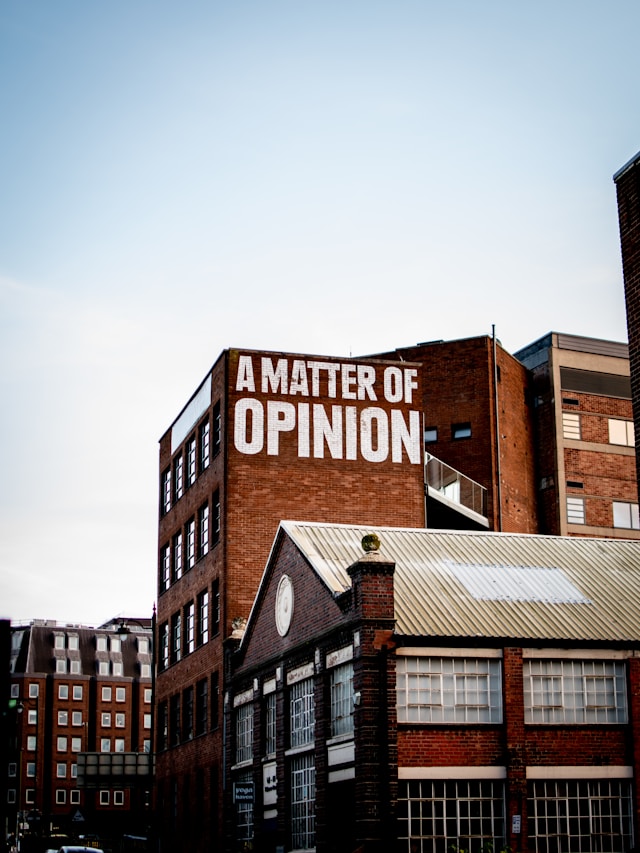This fear often comes from an unconscious assumption that there’s a universal rule book for how humans should behave.
There will likely come a time when you disagree with the ideas and interpretations of others. When this happens, we encourage you to remember that they are a human just like you. There is no reason why their opinion should be more important than yours. They are looking out for themselves, and we encourage you to do the same by following what aligns with your goals or what you think is right. If you don’t do this, you’re listening to another human and may be doing something that benefits other people but not you. Think of all the “gurus” who have harmed their followers.
How do you know right from wrong?
Especially if there is no human rulebook? If you let other humans define what is right or wrong, you are internally declaring that their opinion is more important than your own. Rather than fixate on right and wrong, you can use the law of fair exchange (which advocates for fairly treating yourself and others) to determine if something you want to do creates a win-win and helps you acheive the goals and outcomes you desire.
When applicable, you can use your internal sense of what you think is right to inform your decisions. Keep in mind: Until disproven, your life is about striving for what you want. If you aren’t striving for what you want, you may be striving for something someone else wants.
Some people knowingly or unknowingly believe in a human rule book
Because of this, some people may view your actions and behaviors as “wrong.” Some of these people were raised to automatically label or view certain things as “good” or “bad” without understanding what those words really mean. If they analyzed why someone told them to view something as bad, a number of these individuals would likely reject the reasoning.
Overcoming the emotional trigger of not doing things people expect or are commonly seen will require you to no longer knowingly or unknowingly think you should feel bad if people view you as”abnormal” when you do things that go against a way of thinking or rulebook others abide by, or think exists.
If you think you should feel bad when people think you’re doing “bad” or unexpected things, you are likely elevating their opinion above your own.
*What does ‘bad’ mean? ‘Bad’ often means different things in different situations. Some people use the word bad as a manipulation tactic to scare you or others from doing certain things. If you or someone else use the word ‘bad,’ you can take a second and think, “Why am I/this person calling this thing bad?” If you find you don’t have an answer, it’s likely because someone told you something is ‘bad’ without explaining why.
Why the opinions of others doesn’t matter
Their opinion doesn’t impact whether you have the required skills/abilities/etc for getting what you want. If the people passing judgment on you are truly impacting your goals, you can strategize how to address this.
For example, you can consider moving into a different environment that will make it easier for you to achieve your goals. Figuring out a strategy may take time and thought, but your efforts will often yield more psychological and physical benefits than doing nothing or thinking your situation can’t change. We acknowledge that some people can be in incredibly difficult situations.
Note that when you stop believing in human rule books, you may make those who do, uncomfortable. They believe in something you don’t. They might not even have rock-solid evidence for why they believe what they believe.
What about religious texts/teachers
There are religious texts that prescribe or suggest how individuals should live, but these texts, until proven otherwise, were written by humans like you and I. Some of the writers of these texts claim they were inspired by God. How, though, is it fair that their God wants you to take them at their word rather than you having hard evidence of the divine inspiration they received for yourself?
This is not to say that insights in these books aren’t sometimes helpful. There are, however, people who assert that their interpretations of religious/ancient texts are the absolute truth. Some of these individuals claim that their interpretations are from God, but like we mentioned earlier, why would a God not provide a clear way for you to validate their claims for yourself?
Recommended reads for overcoming social anxiety
There’s more
If you struggle with low self-esteem, self-consciousness, low self-worth, or low self-confidence, we encourage you to view our self-help solutions for these and other common psychological challenges.
Looking for more?
If you’d like to dig deeper or want 1on1 help let us know. Otherwise, we suggest leaving a comment so our experts or someone in the community can help you.
Have something to add?
If you have insights to share or a question we’d love to hear it. Contribute

